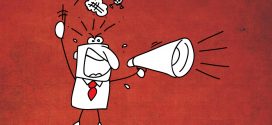If you want to be on top of your body language reading class then one of the skills that you need to polish up is your lip reading. Yes, lip reading is also another means to determine someone’s motive or intentions though these can be a challenge especially if it is your first time actively developing it.
 Here are some useful tips that should help you improve your lip reading skills:
Here are some useful tips that should help you improve your lip reading skills:
- Limitations: The first thing that you should remember when it comes to lip reading is that you should not limit yourself to reading a person’s lips. Try taking cue from his overall body language. Doing so should help you accurately determine his or her mood and mindset.
- Position: One way to make your life easier when it comes to reading a person’s lips is by positioning yourself at least 6 feet or less away from the speaker. Try to position yourself wherein bright lights will not interfere with your line of vision or in a position wherein shadows cast by the lightings can interfere with your lip reading.
- Relax and Concentrate: Being tense can ruin your concentration and will make it harder for you to read someone’s lips hence it is important that you relax yourself. Try not to pressure yourself or rush yourself when it comes to reading someone else’s lips. It will only make lip reading harder.
- Determine the Subject:Subject would refer to what the speaker is talking about. While trying to identify a random person’s topic is next to impossible, being able to have an idea of what someone is discussing can contribute to helping you figure out what is someone talking about through lip reading.
- Get the Gist: Do not even attempt to try getting every word that the speaker says or else you will find yourself failing to read what he or she is trying to say. Remember that the main point in learning lip reading is to get the idea of what the person is trying to say. As long as you get the gist of what he or she is saying then that is already good in itself.
- Be Updated:While this may be out of the subject but being informed of various topics can help you identify what the speaker is talking about. Just imagine, how can you figure out what the speaker is trying to say if for example he is talking about a marketing strategy and you do not have any marketing background? That would be challenging.
 Mentalist Ehud Segev (The Mentalizer) New York City NYC Successful Mind
Mentalist Ehud Segev (The Mentalizer) New York City NYC Successful Mind





